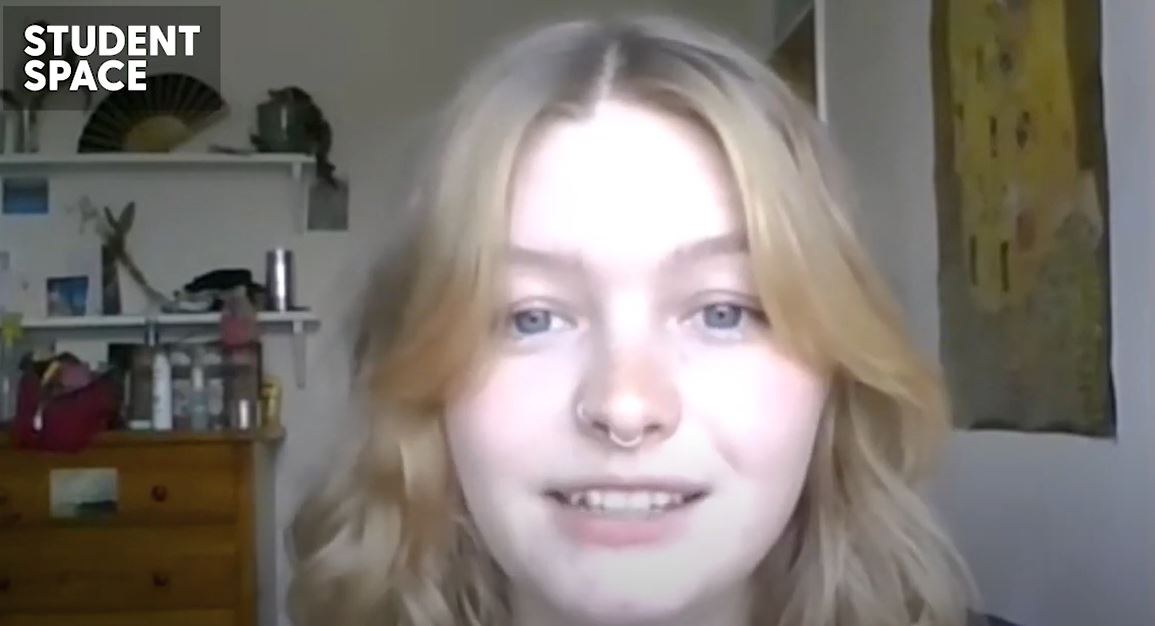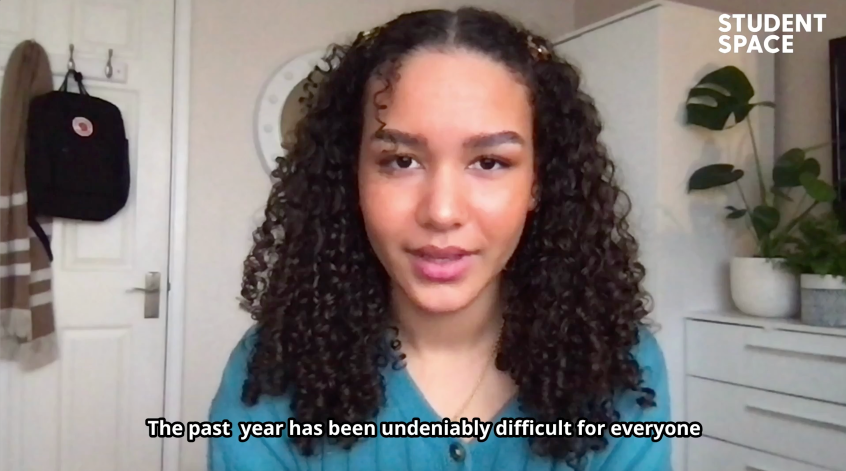Managing the challenges of the pandemic as an Asian student
Grace discusses how the rise in Asian hate crimes during the pandemic affected her and how it helped to minimise time online and focus on positive media. She also discusses her anxiety about things returning to a new sense of normal, and how she used online resources, communication and university support services to manage this.
Grace looks at the key challenges she faced during the pandemic, such as learning about the rise in Asian hate crimes due to coronavirus and experiencing anxiety at the end of lockdown.
- Video transcript
Hi there, my name’s Grace and I’m going to be talking you through some of the key challenges that I have faced during the Covid 19 pandemic, such as learning about the rise in Asian hate crimes due to Covid and experiencing anxiety when coming out of lockdown.
The coronavirus originated from Wuhan, China so some people blamed Chinese people for causing the pandemic.
At one point during lockdown, I became quite obsessed with reading the news and that’s when I first heard of the frequent occurrence of Asian hate crimes in relation to Covid. It really broke my heart, seeing all the news stories - especially as there were students and members of the elderly being attacked. I resonated a lot with the affected victims and it felt more personal because it could have been any of my loved ones who were targeted because of the colour of their skin.
I felt as though people were more inclined to think that because I was Chinese, that I somehow had Covid. I remember coughing or sneezing on a bus once and people were staring at me and I wondered, were they looking at me because I was coughing? Or because I was Chinese, and they somehow assumed that I carried the virus?
From this whole experience, I learned to pay attention to how much time I was spending reading the news. It can make you feel informed and educated because you know what’s going on in the world. But if you become too invested in certain news stories that you notice it impacting your view on the world, then I would suggest taking a step back to limit your screen time and to try to engage with more positive news, this is what I did and it really helped me.
Because of the increase of Asian hate crimes during lockdown, the issue garnered a lot of media attention. There were protests and marches organised to increase awareness of the movement. It was nice to see people care and show concern for the problems that we face as members of an ethnic minority.
I faced some anxiety when things were returning to a new sense of normal and we were finally coming out of lockdown. It was a scary time because I had spent so much time at home, then suddenly, I had to go back to how things used to be.
I remember going to a supermarket for the first time after ages and feeling overwhelmed by how crowded and loud it was. I had to take a lot of deep breaths to try to calm myself down.
I engaged with a lot of online resources on how to ease lockdown anxiety and I just tried to reassure myself to take it one step at a time, and that little progress is still progress at the end of the day. I challenged myself to go outside of my comfort zone in gradual stages. I would meet with friends or talk on the phone, before building up to meet them in-person. I found that although I was quite anxious and nervous before-hand, that the social interactions never went as badly as I initially anticipated. Once I was there and I settled into where I was and who I was with, my confidence in being social in a post-pandemic world grew. I think being honest with the people you’re meeting and telling them how you feel helps a lot. Many of my friends were really understanding about waiting till I felt comfortable to do things in-person again before we met, which was really reassuring.
I also sought support through my university. I attended a weekly CBT group and received one-to-one counselling sessions. I found that talking to someone helped me become more self-aware and gave me the tools I need to self-soothe and to be able to manage my mind more effectively. So if you are struggling, see what resources are available at your institution.
I know that seeking help was not a sign of weakness, but a sign of strength. Remember to pool on your support networks from time to time. Friends and family can often understand what you’re going through, remind you that you’re not alone and that your feelings are valid.
It’s important to step out of the digital space occasionally also - for me there’s more to life than staring at a screen all day. I deleted Snapchat and Instagram and haven’t been on it for over a year now. I’ve noticed that I have more time to do things that I enjoy, I’m able to be more productive, and I’ve found that there’s less potential to compare myself to others if I’m off of social media.
Exercise, engaging with hobbies, practicing mindfulness, and journaling had a massive positive impact on my wellbeing.
It really is the small things in life that have big impacts. Even things such as getting enough sleep, eating healthy, and drinking enough water - contribute to a happier me.

Find support
See what support is available at your university




